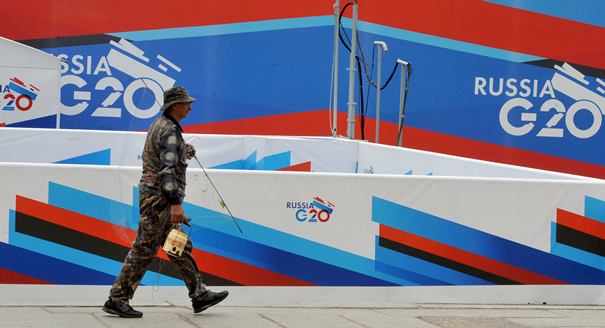The international institutions designed to maintain world order are in a state of crisis. This is not surprising given that they were made for a different time. But what are the global powers doing in response? Instead of reforming the old world order, they are busy establishing new institutions with unclear powers that no one really knows how to use. The best these institutions can manage is to create opportunities for bilateral meetings between leaders; as if heads of state have nowhere else to meet.
The G20 is one of these institutions that no one really knows what to do with. It played its part during the 2009 financial crisis, but since then its members, especially whichever country holds the presidency, have had to rack their brains to come up with new ideas to keep everyone busy at each new meeting. Unnecessary organizations always end up sprouting superfluous parasitic add-ons. The G20 is a classic case. It now has the Business20, Labor20, Think20, and Civil20. All that is needed is the Circus20! These groups produce masses of recommendations that they then send to the G20, where, of course, no one reads them. It is all just more of the “Let’s pretend” game.
The recommendations are curious products. After meeting with Putin, the Russian Civil20 participants drafted advice on how to conduct dialogue between government and civil society. As if Russia’s “tremendous” experience in this area is just what other countries need, especially the developed democracies.
The G20 today exemplifies a paradox that everyone understands, but no one knows what to do about. Just think, Putin’s Russia hosted the APEC summit in 2012, will host the G20 summit in 2013, the G8 summit in 2014, and then the BRICS summit in 2015. In essence, Putin’s Russia will play leader to both the developed and developing countries. And yet this is at a time when the Russian authorities are taking the country back into the past and are busy destroying its sources of progress.
In the spring of this year, the Russian Foreign Policy Council and the hitherto obscure U.S. Center on Global Interests presented a report with recommendations for Moscow on how Russia can “set the course,” in other words, how to show leadership at the St. Petersburg G20 summit. The report itself and the discussion on its content, as is so often the case, just confirmed that the G20 is really just one big boondoggle. Under the leadership of Putin’s Russia, this upcoming summit will be a global Potemkin village.
In the discussion on the report, it was Sergei Aleksashenko who best summed up the situation. He totally destroys the whole illusion of any leadership by Putin’s Russia and makes clear just what the G20 is all about today. If the issue interests you, read Aleksashenko.
